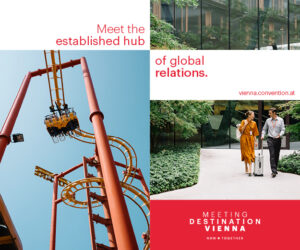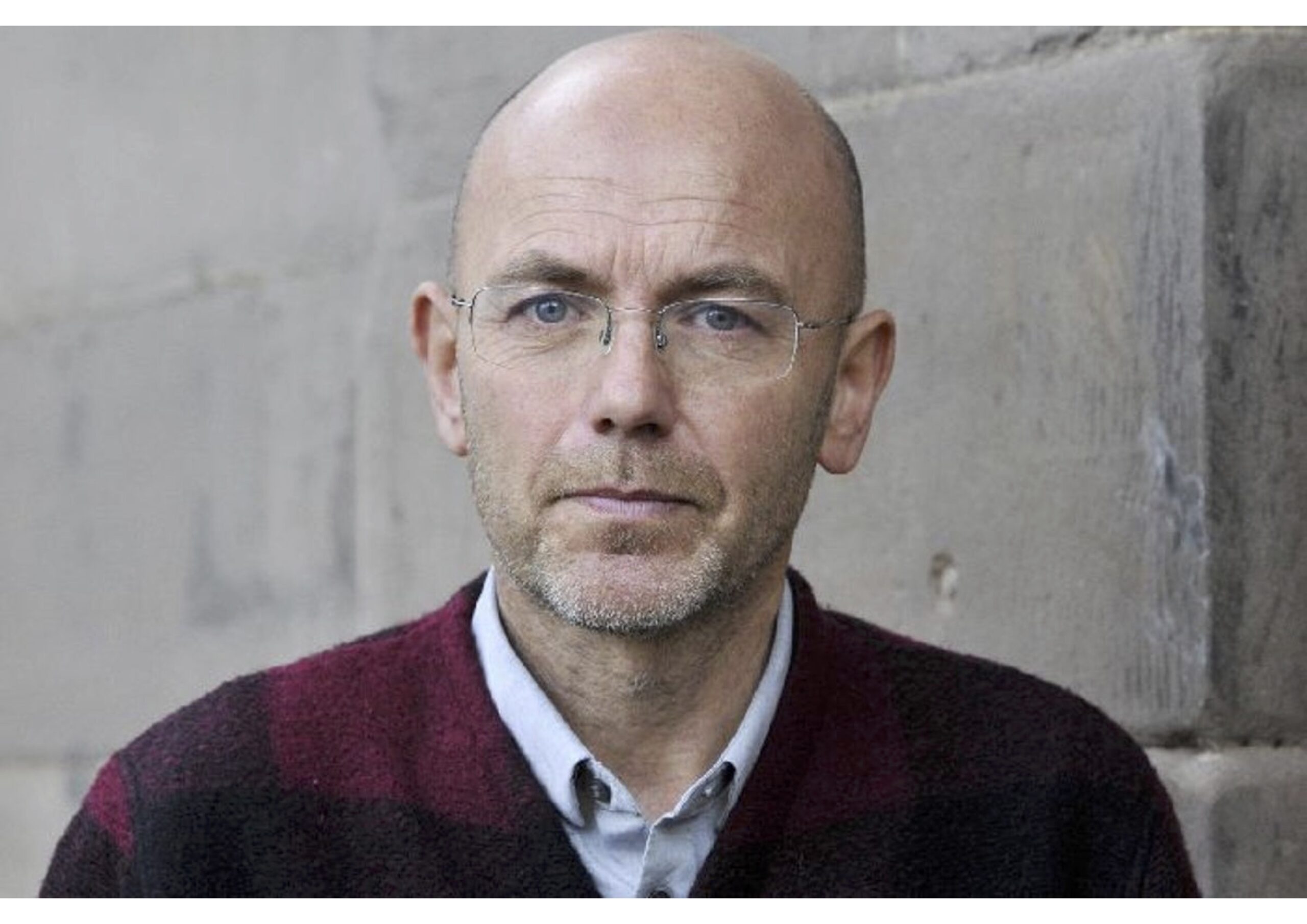When focussed on ‘doing the right thing’ ethically, environmentally and ecologically in business, organisations often have to weigh up the fact that this will often not lead to the most cost effective of routes. In an era when customers are more price savvy and sensitive than ever, how can business leaders be persuaded to look more to the long term of community and the planet rather than the short-term view of the financials?
Wayne Hemingway, fashion pioneer who co-founded Red or Dead in the 1980’s and now co-founder of HemingwayDesign, the creative force behind The Good Business Festival. In 2012, Hemingway wrote a controversial piece for The Guardian – ‘The British high street is dead – let’s celebrate’ in which he highlighted reported predictions suggesting four out of ten shops would be closed in the next five years would subsequently create places that people want to see and be seen in. He was ‘trolled’ with negative comments about the article as the retail industry felt that he was being overly pessimistic. As someone who has highlighted similar change in articles from 2009 onwards, I absolutely empathise with how challenging it can be to raise your head above the parapet and highlight that change can be embraced for good.
Is Hemingway about to embark on further criticism as he emphasises the need to see more change in businesses doing the right thing, over and above what might be the most profitable thing? I chatted to the fashion outlier about challenging the norm, and surviving in retail.
“I don’t think Covid-19 has changed anything with retail, all it has done has accelerated it. We were on a path to a major societal shift, and one that I personally applaud. I think society generally makes the right decisions, with the odd major blip. There was an awful time where we would use sayings like ‘shop ‘til you drop’ – shopping became a pastime and I always wondered why that would be someone’s hobby. Surely there are better things to do than trawl around a shopping centre every Saturday – and I never understood it. It felt like a major societal aberration. But now it is understood by everyone that needs to understand it – planners, elected councillors, council leaders that our town centres are not temples of retail anymore.”
“Our town and city centres became one dimensional, we knocked down homes and apartments in centres to fit in more retail in the ‘80s and ‘90s. For some reason we thought that all we wanted to do in life was shop. Now all of those poor planning decisions are coming home to roost, and now we are saying – we need the council offices and the health centres in our town centres to support the retail. At least we are going back to human values and if that means casualties on the way – I don’t see the likes of Debenhams closing down as a problem. It is a shame for people that are employed in those places, but what’s the point of being employed in a dinosaur?”
Hemingway thinks the challenges faced by a lot of the major branded retail stores is the fact that they are simply duplicates of one another.
“Why did we need Woolworths all of those years ago? Why did we need somewhere on our high streets that the first thing you went into was the Pick n Mix? What was that about? If you want Pick n Mix – go to the local sweet shop, support the local trader. If you are going to be a big retailer, you should be providing something the smaller ones can’t provide – because they havent got the reach or can’t meet the volumes. So many of our big retailers canabilsed our smaller, independent retailers.”
Now however, Hemingway thinks that consumers have seen the light, ignited by the shopping values of Millennial, Gen Z and even Gen Alphas who understand provenance. “They are doing the right thing by saying ‘up yours, Debenhams – you have nothing for me”
Challenging Hemingway that actually these consumers can be quite ‘pick n mix’ themselves when it comes to ethics and doing the right thing all of the time, as their buying habits can demonstrate many are as content buying disposable fashion as they are committing to reusable cups and straws, he highlights:
“Rome wasn’t built in a day. The journey has started. The conversation about being sustainable and ethical had started in my Red or Dead days. We were a values led design company. Nearly every catwalk show we did in the 80’s and 90’s had a societal message within it. We had a huge show supporting Greenpeace one year, I mean, we were classed as weirdos. We were pariahs of the industry – you could tell many were thinking ‘what are these people in fashion industry doing talking about ethics. Fashion is about beautiful clothes and shoes.’ And there we were putting politics with a small p at the heart of everything. Yes we had a great following – enough to build a decent brand – but you didn’t get any plaudits in the media for doing the right thing then. Look at People Tree (the fair trade fashion pioneer) and Safia Minney MBE – we are now in a time when people do want to hear about this. You are not laughed out of the house for having these views. Yes there are still a lot of young people who queue out of the door at Primark for the latest £6 blouse, but on the other hand the TV companies are creating documentaries highlighting the supply chain and educating us. The change is happening – but it is not like switching a light bulb on.”
Hemingway highlights how important it is for business leaders to be part of the movement, or face the brutal rejection from an increasing amount of ethically concerned consumers :
“When Phillip Green was flying in celebrities and friends to Cyprus, everyone dressing up in togas and enjoying celebrity performances – it was seen at the time as ‘imagine having the money to do that’. Now it’s not seen as that, even papers that once would champion the glamour and reporting that it was a really good thing to do – will now be critical of such behaviour. If you look at the sales of the brands like Topshop, I think they have been tarred by the unethical behaviour of the people involved”.
But is this a case of organisations genuinely changing or do we have to accept there is still a lot of ‘green-washing’ where businesses say the right things but often practice differently?
“Bigger businesses especially have to be on a journey towards being purposeful – if you are not – you simply have no chance. I would imagine every retailer, including Phillip Greens empire are talking about this and doing things positively all the time now. They would be toast without it. Nobody is that stupid to think ‘this is going to blow over’ or ‘let’s just carry on like before’. They know what they have to do, they have to start to deflect what is coming at them. If they ‘green-wash’ they will get caught out. People are sharp, young people are sharp. For every thousand people who love and shop at Primark. if there is one person who is after Primark for doing something wrong, they will find it. There will be a whistle-blower, somebody will get in there. I wouldn’t want to be in a leadership team of a big company thinking I should just cover something up – they know that some activist will get inside the company and blow the whistle. You can’t change overnight, you can’t move all of your production immediately, but I do think everyone is on a journey of change – and the ones that go on the route to being purposeful faster will benefit.”
And that is where The Good Business Festival comes in to play.
“We are trying to create the world’s go-to event for purposeful business. It is public sector funded, the money came from central government, then to the combined authority in Liverpool and distributed out as part of the levelling up agenda, to create a world festival in a regional British city outside of London. This is not a conference – it is not lanyards and suits. We felt that whilst there were many events about being purposeful, there wasn’t one for those businesses that were on a journey. You can still be an oil company and be part of this. Oil companies identify the future is about green energy.”
Creating an event that is inclusive and realistic about purpose may be the real difference to attracting a wider business audience to this event. Often events celebrating green, ecological and ethically sound behaviour from businesses can feel that they are only for organisations that have a tick in every box. How will Hemingway at the team behind The Good Business Festival help to attract those who are just starting on their development of more ethical business practice?
“We want to be the broadest church that has ever happened, and we want to stay that way. Not everyone can be a B-Corp, it might take 20-30 years for some businesses to get where they would like to be tomorrow – and we absolutely accept that. We wanted to ensure that no business felt alienated – there is something for everyone. No preaching.”
Read next story ➜ Don’t Stalk, Inspire





